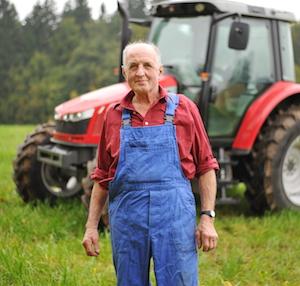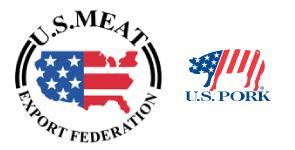The US Industry
The US Industry
Today, pork production combines many inputs into a complex process of converting feedgrains, high- protein feed ingredients, vitamins, minerals and water into live hogs and eventually, pork and pork products. This ultimate goal is attained by five basic production systems:
- Farrow-to-finish farms that involve all stages of production, from breeding through finishing to market weights of about 270 pounds.
- Farrow-to-nursery farms that involve breeding through marketing 40- to 60-pound feeder pigs to grow-finish farms.
- Farrow-to-wean farms that involve breeding through marketing 10- to 15-pound weaned pigs to nursery-grow-finish farms.
- Wean-to-finish farms that involve purchasing weaned pigs and finishing them to market weights.
- Finishing farms that buy 40- to 60-pound feeder pigs and finish them to market weight.
Feed is the major production input to the pork production process. In fact, feed accounts for more than 65 percent of all production expenses. The average whole-herd feed conversion ratio, or pounds of feed required per pound of live weight produced, for the U.S. pork industry is about 3.0 to 3.2 and is improving (getting lower) steadily. This figure includes the feed fed to boars and sows.
For comparison, consider that beef cattle take 7 to 10 pounds of feed to produce a pound of live weight, and broiler chickens require about 2 pounds of feed per pound of live weight produced. The most efficient U.S. swine herds have whole-herd feed conversion ratios under 3.0.
A variety of feed ingredients is used in proper proportions to produce “balanced” diets for pigs at each stage of their development. Corn, barley, milo (grain sorghum), oats and sometimes wheat are used to provide dietary energy in the form of carbohydrates and fat. In 2011, corn usage was 983 million bushels and soybean usage was 410 million bushels. Corn usage was lower than in recent years due to the substitution of distillers dried grains with solubles (DDGS), a by-product of ethanol production, for corn in pig diets.


